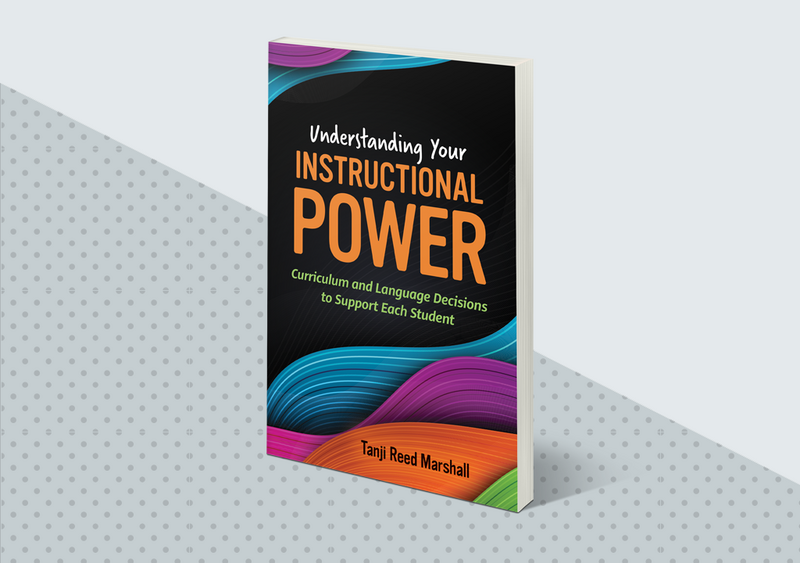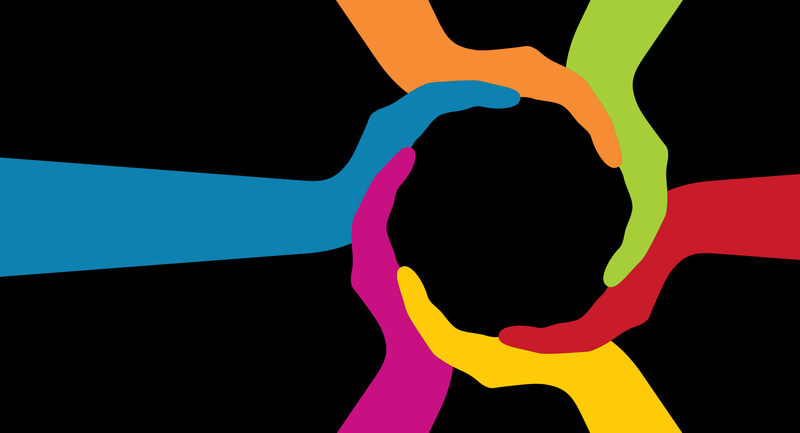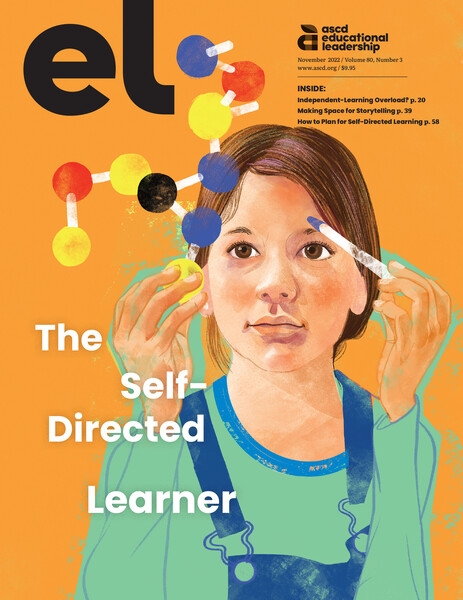"Kids today are different."
This statement has been said to me more times than I can count. I once thought it was just adults forgetting who they used to be as young people. These past two years, however, have changed my perspective. School building closures, extended periods of remote learning, and ongoing uncertainties about what education means in modern times have shown us that kids today are indeed different. During the pandemic, they experienced more freedom and flexibility than ever before, choosing when to work, how much they wanted to work, and whether they wanted to be on camera, and navigating systems and processes once under the purview of adults. This level of educational autonomy has transformed the learning environment.
Student engagement no longer rests at the feet of teachers. For many educators, gone are the days of sage on the stage where teachers are the sole arbiters of information-dispensing and students are merely sponges. Classroom educators have been charged with assuming the role of facilitator and giving students more say in the process of learning design and implementation. With this shift comes the need for an adjustment in the relationship between adults and students.
Since the inception of formal schooling in our country, adult privilege has defined the teacher-student relationship. The structure has followed an in loco parentis framework, which literally means "in place of the parent" (DeMitchell, 2012). In its original structure, parents turned their rights and responsibilities for their child's care over to the school. This century-old model mostly leaves students out, relegating them to bystanders in their education.
The in loco parentis model gives adults full control over the environment, curriculum, and instructional practices shaping what and how students learn. This has been particularly true for students of color, especially African American males, whose cultures and identities continue to require shelving (Reed Marshall, 2018), forcing them to choose between being what school expects of them and being their authentic selves. Such expectations create disenfranchising environments (Reed Marshall, in press) where students are completely disconnected from their learning as adults engage in practices that signal exclusion, low expectations, and, often, unacknowledged and unresolved bias and racism.
To shift away from this model, teachers today need to consider a variety of pedagogical moves that center students in the instruction. There needs to be a move toward a balanced approach whereby teachers and students partner to co-construct student learning. This is where agency comes in.
Moving Toward Agency and Voice
Studies on student engagement have revealed a critical need for a shift in our pedagogical conception and approach (Benner, Brown, & Jeffrey, 2019; Dabrowski & Reed Marshall, 2018). This has led to increased calls for students to have greater agency, with opportunities for their voices to be more explicitly part of the learning process. As Zepke (2018) explains, "Student engagement is a complex construct used to identify what students do, think, and feel when learning and how teachers can improve that doing, thinking, and feeling in instructional settings" (p. 433).
Student agency and voice have become critical components in increasing student engagement, which also has implications for student outcomes. As calls for student agency and student voice increase, important questions arise about how best to move toward developing and making space for students to be part of the learning experience.
What is Agency (Really)?
While agency has become an increasingly important focus in K–12 education, there does not seem to be a clear understanding of it as applied to the school setting. Conceptually, agency is about the ability to choose and make self-directed, self-determined decisions. Narayan et al. (as quoted by Samman & Santos, 2009) define agency as an individual's or group's ability to make purposeful choices. Such choices depend a great deal on a person's assets and capabilities, both social and psychological. Connecting this to the school environment means realizing that students come with a host of assets, which influences their approach to learning. The social components include a sense of belonging, identity formation and expression, and the capacity for and demonstration of leadership. The psychological components include self-esteem, self-confidence, and the ability to have a vision for the future. In recent years, schools have been investing time in making sure students feel a sense of belonging and building their self-esteem. What must be understood, however, is that focusing on belonging and self-esteem, without express development of a child's understanding of what it means to be agentive, does not guarantee that self-esteem and belonging will lead to a child developing and exercising agency.
Samman and Santos (2009) extend Narayan's definition of agency by including voice as part of an individual's or group's ability to advocate for their needs. Voice, they explain, is the ability and willingness to speak up for oneself and make ideas heard and needs expressed. Voice also relates to an individual's capacity and willingness to see the needs of others and speak up on their behalf when the person is unable to do so. In a classroom context, this would include a student's ability to behave in socially just ways on behalf of others.
When much of school continues to operate under the adult-centered model, student agency development increases to the degree to which an adult understands and believes children should be partners in their education. For some educators, this partnership concept remains elusive, especially with respect to children in younger grades where adults wield complete control over nearly all aspects of the learning environment, curriculum, and instructional delivery mechanisms.
A true learning partnership is what many educators are primed to say they want with their students. Unfortunately, students experience a narrower form of partnership. In an educational setting, agency primarily involves choice; however, what students experience in most school settings is more like "managed choice" as opposed to real agency. Students are allowed to exercise their agency to the degree that what they want to do fits within an adult-designed framework. I have heard teachers say they want to give students agency, only to find that they are allowing students to make choices from within a set of options they have designed. Think of activity and menu boards. Students are making agentive choices, but such choices are prescribed as opposed to self-generated.
A classroom where students are developing and exercising agency is one where the power dynamics shift.
The Promise and Power of Agency
As educators work to increase student engagement, agency (inclusive of voice) requires a willingness to build students' capacity to understand what it means to have agency and how to exercise it. Giving students managed choice through prescribed instructional options is one limited way. While managed choice has its place, students need opportunities to develop the kind of authentic agency that leads to deep engagement. True agency has been linked to increased student engagement as teachers give students choice along three main areas: process, product, and content (Dabrowski & Reed Marshall, 2018).
Each of these areas allows students to make decisions about how they will demonstrate content knowledge. Giving students options on what processes (how students approach their learning) and products (the evidence students use to demonstrate their learning) they will use to demonstrate learning is a powerful way to foster ownership and decision-making. It gives students opportunities to operate beyond the prescription so often defined by the schooling process. Allowing students to make a choice about how they will demonstrate knowledge and understanding signals a degree of trust in the student's knowledge of their content and their ability to make wise choices regarding how they want to show their knowledge.
Developing student agency through choice-making around process and product requires a leap of faith and a dispelling of bias around what it means to demonstrate knowledge and who has the capacity and resources to do so. Bias will cloud a teacher's ability to equitably allow students to make choices regarding how best to prove what they know and how well they know it. In my work with educators, I hear far too often about how they need to prescribe what students will do, based on a belief gap between what teachers believe students can do and what students can actually do.
Many teachers have used the need to be equitable as a weapon to curtail students' agency development out of misplaced compassion about the perceived ability for some students to access resources versus other students. For example, a teacher might become prescriptive, allowing students only to use school-provided supplies instead of inquiring as to whether or not a child has access to resources outside of school. Such assumptions can create a reductive perspective about students' access to resources. While there are disparities and resource gaps, too many students are robbed of their ability to develop agency simply because an adult decides they know best about a child's circumstances.
While process and product are easier avenues for building agency and allowing students to exercise voice, content—what students learn—is more challenging. In this instance, content is the information from the disciplines students encounter. Many educators themselves are restricted in their curricular autonomy (Reed Marshall, in press). When this happens, teachers have limited ability to develop student agency because their own agency is limited. However, even with restricted or curtailed autonomy, developing student agency is still possible and necessary. Despite restrictions, teachers can infuse content agency through extension projects and working with administrators and instructional coaches to expand components of the curriculum. They can also go beyond the curriculum via community partnerships that can bring local experts into the classroom. Doing so can expand student knowledge and extend connections to the community.
As educators engage students, their ability to more fully know their students and the content they teach allows them to move within the constraints to build agency through the intersections of content, process, and product. The deeper a teacher's content knowledge, the more adept they are in knowing when students are authentically engaged in the work of a discipline.
In developing agency that goes beyond social-emotional development or learning, educators must foster deep knowledge and understanding of concepts, disciplines, and principles associated with content areas to push students toward independent, critical, and strategic thinking. Doing so positions students to be their own academic champions when needed and better partners with the adults who help them learn.
The Practice of Agency
Building agency requires focused effort on the part of educators. It is more than a matter of giving kids choice boards and allowing them to weigh in on classroom procedures and rules. It requires as much work on the adult side as it does on the student side. Often, when ideas enter education, the field goes right to what adults need to do for children while ignoring what adults must do for themselves to prepare what they need to do with and for their students. Building agency in students means adults need to have a clear understanding of agency. They must be willing to explore their underlying belief systems about the relationship between agency and power. A classroom where students are developing and exercising agency is one where the power dynamics shift.
True agency requires teachers to give students choice along three main areas: process, product, and content.
There must be a readiness on the part of the adult to build student knowledge and put explicit effort into guiding students along the way. Turning over decision-making to students to build agency without building their knowledge, understanding, and skills will create chaos and set students up for failure. When this happens, teachers will revert to the teacher-centered norm, blaming students because "it didn't work."
Agency-building is a practice—one that requires adult-first work. There must be self-examination about one's power ideology, one's biases about who deserves agency, and how one views the role of students in the classroom. Absent authentic self-reflection, they will rely on overly simplistic forms of agency. This work entails taking a walk down memory lane to remember what it was like being a student. How did your school demonstrate its values about culture? What was your place within the culture of the school? In doing this type of work, educators raise their sensitivity level to all students, especially those who may need more support to see where they fit in the life of the classroom.
Additionally, moving toward agency development without the necessary adult work will create inequitable forms of agency expression in the classroom. When students exercise agency in a classroom where teachers have not worked to recognize, name, and mitigate their biases and prejudices, they will pay a price. Students whose teachers do not believe have the right or capacity to be agentive will come up against bias and prejudice, which will result in teachers reacting negatively to protect what they believe is their position and power to control. Students whose teachers believe do have the right and capacity to be agentive will enjoy opportunities to own their learning in ways others do not. Such imbalances typically fall along the unfortunately predictive lines of race, ethnicity, class, and ableism.
The promise, power, and practice of agency necessitates creating spaces for students to build and develop agentive skills such as:
Advocating for their educational needs.
Participating in class in ways that elevate their identities outside the school-sanctioned forms of identity expression and classroom participation structures.
Determining where, when, how, and with whom to exercise agency.
Students need space to learn about agency, what it is, and how it operates. They must also learn that not every adult will positively respond to them as they exercise their agency, which means they must be taught how to respond when this happens.
Building Lifelong Skills
The promise, power, and practice of agency is more than allowing students to tell their teacher what they want and do not want. It is more than managing the choices students are given. Agency development is about building a set of lifelong skills students need as they move through school and prepare for their world beyond school. School should be the catalyst for agency development in ways that create safety, authentic identity formation, and academic growth.
Understanding Your Instructional Power
Tanji Reed Marshall's comprehensive guide to understanding your power as a teacher—and how to use it to foster student agency and empowerment.








